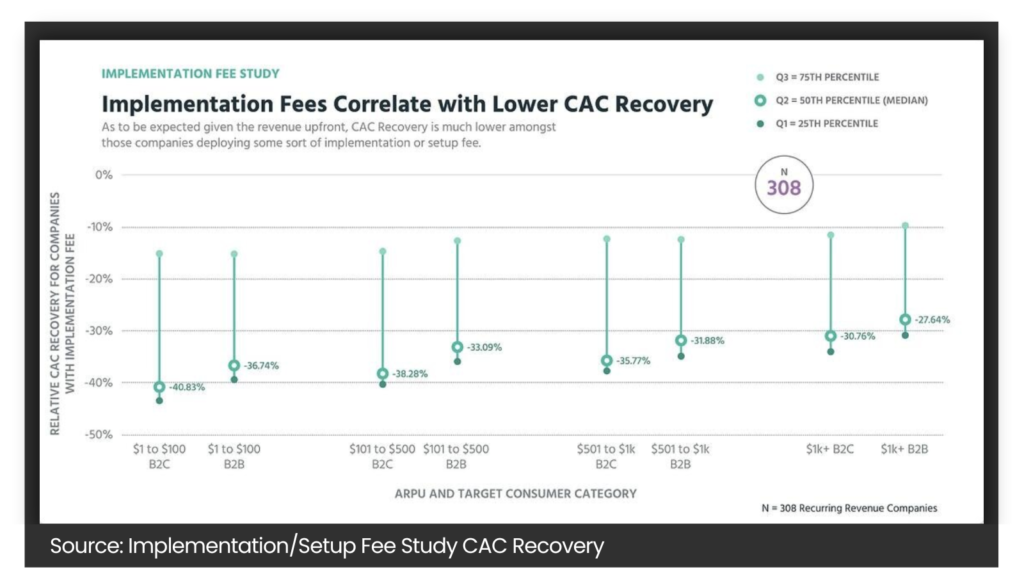In the competitive landscape of the software industry, companies often grapple with the dilemma of how to price their products and services effectively. One pricing strategy that has gained traction over the years is charging software implementation fees. These fees are levied on top of the software’s base cost and are intended to cover the costs associated with setting up and customizing the software to meet the unique needs of each client. While some software companies may hesitate to implement these fees, this blog will argue why charging implementation fees is not only justified but can also be a strategic advantage.
Software implementation & customer onboarding shouldn't be viewed as a cost center.
On the contrary, a top notch software implementation experience can unlock a lucrative revenue stream.
In B2B SaaS, whether your team should charge for implementation services is often widely debated. While some providers believe charging software implementation fees may drive away new business, these fees have become more common and expected amongst SaaS orgs because of the benefits they offer buyers and sellers.
While the most obvious benefit to charging an implementation fee is the added revenue stream that will offset the cost of providing onboarding services, implementation fees also help:
- Increase accountability for all key parties
- Reduce onboarding related churn / ‘failure-to-launch’ Improve net retention & CAC recovery
- Provide an additional sales lever to help close deals
How Software Implementation Fees Improve CAC & Retention Rates
Charging software implementation fees can significantly enhance Customer Acquisition Cost (CAC) and retention rates across different ARPU customers considerably. Firstly, by levying these fees, companies can filter out casual or uncommitted prospects, attracting clients who are genuinely interested in and committed to their software solution. This selective approach improves CAC, as resources are allocated more efficiently to nurturing and converting high-quality leads, reducing wasted efforts on less serious inquiries.

According to the Implementation/Setup Fee Study CAC Recovery, “companies with implementation fees typically see roughly 10 to 20% better net retention across different ARPUs than their non-implementation fee cousins.”
The act of charging implementation fees can create a psychological bond between the software company and the client. Clients perceive greater value in a product they have financially invested in, increasing their likelihood of staying loyal to the software in the long run. This improved retention rate not only ensures a consistent stream of recurring revenue but also reduces the need for costly customer reacquisition efforts.
Charging software implementation fees optimizes CAC by attracting serious clients and boosts retention rates by fostering a deeper commitment from customers. It’s a win-win strategy that not only enhances revenue streams but also strengthens the overall relationship between software companies and their clients.
Why You Should Charge a Software Implementation Fee
In the SaaS space, we understand that many different factors go into determining your organization’s pricing structure and which features and services to charge additional fees for. We also understand the critical decisions that are at play when ensuring the success of your technology adoption initiatives.
In this insightful video featuring implementation and onboarding expert, Jeff Kushmerek, we take a deeper look into the multifaceted advantages of introducing software implementation fees to your services plan.
As we explore the landscape of software implementation, Jeff’s expertise will guide us through the complexities and nuances of this crucial aspect of the software business. From enhanced customization to improved client commitment and financial stability, this video promises to unravel the many layers of how implementing such fees can drive success in the software industry. Join us as we embark on this journey to uncover the invaluable insights Jeff has to offer regarding the implementation fees that can shape the future of software companies.




